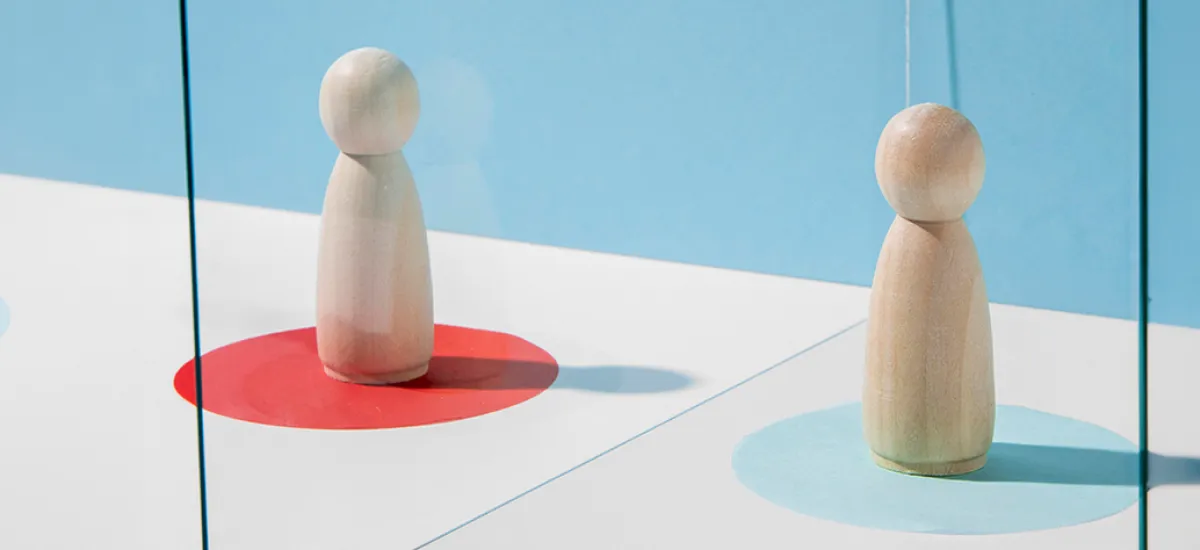Have you ever felt like your emotions are on a rollercoaster ride at certain times? It could be your hormones! Hormonal fluctuations play a powerful role throughout a woman's life. They shape not only her physical health but also her mental and emotional well-being.
The connection between hormonal changes in women and their impact on mood, emotions, cognitive function, etc., is fascinating and important. Understanding this connection will allow you to manage irregularities and improve your menstrual health.
While the female body goes through several changes of different types and magnitudes, there are four major phases in a woman’s life -
· Puberty - The transition to adulthood, marked by hormonal changes and physical growth.
· Menstrual cycle - Monthly hormonal fluctuations resulting in menstruation.
· Pregnancy - Period of gestation involving the growth of a fetus along with other bodily changes.
· Menopause - Natural cessation of menstruation, accompanied by hormonal adjustments and symptoms.
Some women experience all of these phases, while others experience some of them. But whatever phase one goes through, hormonal changes accompany it. Let's understand these hormonal changes better.
· Puberty
Puberty onsets in girls between the ages of 8 and 13. During this time, the hypothalamus (a small region in the brain that regulates essential bodily functions like temperature, hunger, and sleep), pituitary gland (a tiny gland in the brain that releases hormones to control many important functions in the body), and ovaries together create a surge in estrogen and progesterone. This sudden surge triggers physical changes and emotional turbulence.
Physical changes include -
· Breast development
· A rapid increase in height and weight
· Acne
· Development of body hair
· Widening of hips
Emotional and psychological changes can cause a high level of emotional sensitivity. You can easily get irritated, angry, sad, etc., which are all part of extreme mood swings. You may also experience a desire for independence and detachment from your parents.
Some girls start to feel self-conscious because of developing bodies and acceptance issues. This sometimes also leads to anxiety in societal interactions. Others may develop confidence because they feel positive about their new physical appearance.
It's important to understand that the symptoms of hormonal changes vary from woman to woman, and the experiences might not be linear.
· Menstrual cycle
Girls get their first period between the ages of 10 and 13. The entire menstrual cycle is typically 28 days. But it varies from woman to woman. Some get their period regularly every month, while others don't.
In the first few months, the menstrual cycle is very irregular. But it gets into a routine once the body adjusts to the highest and lows of hormones.
The menstrual cycle is divided into four distinct phases - follicular, ovulation, luteal, and menstrual.
· Estrogen levels are high during the follicular phase. You feel energized and focused, and you are in a great mood
· Then comes the ovulation phase. This is when the estrogen levels are highest. You might feel confident and experience a boost in libido
· Then there's the luteal phase. Progesterone levels are not at their highest. This triggers a shift in your emotions. You might experience irritability, mild anxiety, or even fatigue. These are usually termed Premenstrual Syndrome (PMS) symptoms
· Finally comes the menstrual phase. This is when you get your period. Both progesterone and estrogen levels are dropped. You might feel sad or depressed during this stage
· Pregnancy
If you get pregnant, menstruation halts from conception and resumes a few months after the delivery. During these months, estrogen, progesterone, and human chorionic gonadotropin (hCG) hormones dramatically increase.
These hormonal changes in women bring many women a sense of euphoria and anticipation. However, some may grapple with mood disorders like anxiety and postpartum depression.
Shockingly, up to 15% of women suffer from postpartum depression, characterized by feelings of sadness and exhaustion. Factors like a history of mental health disorders, difficulty breastfeeding, and lack of social support can increase the risk.
Some women prefer to take hormonal contraceptives (HC) to prevent pregnancy. These include birth control pills, patches, and intrauterine devices (IUDs). Focused research with 188 participants revealed that 43.6% of women using HC experience mood changes. And women with a history of psychiatric illness were more likely (61.2%) to experience mood swings. This means that if you are planning to take hormonal contraceptives, you must be careful and consult a doctor before doing so.
Still, there's a debate in the medical community on the extent of the effects of HCs on mental health. One of the suggestions is to reduce the hormone dosage in the pills to reduce their psychological effects. The question remains about the effectiveness of the reduced dose. Studies are in progress to determine this.
· Perimenopause and menopause
As you approach your late 40s or early 50s, you enter the perimenopausal stage. This comes a few years before menopause. During this time, the generation of estrogen and progesterone slowly decreases.
As a result, you might experience hot flashes, sleep disturbances, memory lapses, increased libido, irregular periods, etc. These hormonal changes in women can also cause anxiety, depression, and difficulty concentrating.
Menopause sets in after twelve consistent months of no periods. After menopause, women feel relief from most of the perimenopausal symptoms as the body gets adjusted to the low hormone levels.
There's no single strategy that can work for all women or solve all your mental health problems related to hormone changes. However, there are a few effective methods that, when combined according to your preference, can give great relief from hormonal changes and symptoms. Here's what you can do -
· Practice meditation and breathing exercises to help manage stress caused by physical and emotional changes
· Maintain a balanced diet. Consult a dietician or nutritionist and get a meal plan customized for your body type
· To divert your attention from stress, indulge in coping mechanisms like journaling, listening to music, gardening, etc.
· Get more than 7 hours of sleep so you don't feel tired during the day
· Stay hydrated to avoid symptoms like hot flashes and excessive sweating
· Exercise regularly to avoid joint pains and weight gain and maintain a flexible body
As stated earlier, exploring the connection between women's hormones and mental health is essential to understanding why you are on an emotional rollercoaster ride. Though you cannot completely control the hormone fluctuations, you can take proactive measures to decrease the severity of their symptoms.
· Use menstruation-tracking apps to track your entire cycle
· Consult your doctor for timely screenings and medications
· Make positive lifestyle changes, including diet and exercise, to relieve symptoms of hormonal changes
· Be prepared for every stage with proper tools like health insurance, a list of doctors, etc.
· Track your medical history throughout your life
Apart from that, consider investing in women-centric insurance plans. The right plan can cover the costs of healthcare expenses, medications, wellness, and more when you're going through a difficult phase. Future Generali's insurance plans cover several women-centric issues.
Feel free to ask for help whenever you need it. Hormonal changes in women are not a taboo, no matter what society tells you. Voice your needs to your friends and family members. Don't feed into the stigma around it. Educate yourself and those around you.

Ayushman Bharat, launched in 2018, is one of India's most ambitious healthcare initiatives. It provides accessible and affordable healthcare to millions of citizens across the nation. A...
Read More
Are you giving your breast health the attention it deserves amid your busy schedule? Important, yes, but often overlooked amidst a busy schedule. Simple breast care and...
Read More
Pain and discomfort are indeed a part of the package of being a woman but they can be managed through information and medical help. Women's health awareness...
Read More
Menstruation is a natural biological process experienced by all women. And, as we all know, it is often shrouded in secrecy and stigma. However, understanding and maintaining...
Read More
Have you ever felt like your emotions are on a rollercoaster ride at certain times? It could be your hormones! Hormonal fluctuations play a powerful role throughout...
Read More
Migraine headaches are a prevalent neurological condition often characterised by intense throbbing pain on one side of your head, accompanied by nausea, vomiting, and sensitivity to light...
Read More
Bringing new life into the world is undeniably one of the most miraculous journeys a woman can embark upon. It's a profound blend of joy, anticipation, and...
Read More
Invisible yet insidious, air pollution is a stealthy threat that weaves itself into the very breath we take. It's a cocktail of harmful gases and particles that...
Read More
Water is the elixir of life. Yet, polluted water can steal the well-being of millions, particularly women and girls. The effects of water pollution are far beyond...
Read More
Starting a family is one of the best feelings in the world. Unfortunately, some women face challenges when trying to start a family. But why is that...
Read More
Section 80D of Income Tax is an important provision for claiming health insurance tax benefits for individuals and families (including Hindu Undivided families, i.e., HUF). It provides...
Read More
A zillion questions pop in the head as soon as you get the good news. What should I eat? What should I avoid? Work life balance? Should...
Read More
Regarding health insurance, top-up and regular health insurance plans are two prevalent options. While both provide coverage for medical expenses, there are some important differences. Regular health...
Read More
What is the Mahatma Jyotiba Phule Jan Arogya Yojana? The Mahatma Jyotiba Phule Jan Arogya Yojana (MJPJAY) is a health insurance policy run by the Maharashtra government...
Read More
World Cancer Research Fund Internation found around 18.1 million cancer cases globally in 2020. Of these cases, 9.3 million were linked to men, and 8.8 million were...
Read More
Picture this: It's a cosy Sunday morning, and you're curled up with a cup of coffee, scrolling through your social media feed. Amidst the clothing videos and...
Read More
In today's dynamic world, navigating the complexities of health insurance can be daunting for many of us. This is where HIPAA comes into the picture. HIPAA stands...
Read More
Women's mental health is a complex dance between societal expectations and biological changes. Societal pressures to be perfect caregivers and achieve career success can create overwhelming stress....
Read More
It is a relief when your period shows up on time, but sometimes you wish it came sooner rather than later. Sometimes, you are thinking, "How can...
Read More